On the occasion of the 100th anniversary of Vietnam Revolutionary Press Day (June 21, 1925 - June 21, 2025), Vietnam News Agency respectfully introduces the article: "Applying President Ho Chi Minh 's journalism style in the new era" by Associate Professor, Dr. Nguyen Thi Truong Giang - Deputy Director of the Academy of Journalism and Communication: Over the past 100 years, Vietnam's revolutionary press has continuously grown and developed, making an important contribution to the cause of national liberation, building and defending the Fatherland.
In that journey, President Ho Chi Minh was not only the one who laid the foundation for the country's journalism, but also a typical model of an outstanding journalist. Learning and creatively applying Uncle Ho's journalism style has great significance in consolidating the vanguard role of the press on the ideological-cultural front, contributing to realizing the era of national rise.
Founder, Great Journalist of Vietnamese Revolutionary Journalism
In the history of Vietnamese revolutionary journalism, June 21, 1925 marked a special milestone - the birth of Thanh Nien Newspaper, founded by leader Nguyen Ai Quoc.
This was not only the beginning of the country's revolutionary press, but also a symbol of President Ho Chi Minh's sharp political thinking and strategic vision in using the press as a lever to enlighten and awaken the nation and promote revolutionary action.
From a very early age, he realized that the press was not simply a means of reporting news, but first and foremost a weapon of ideological struggle - a particularly important tool for propagating ideals, organizing forces and leading the revolutionary movement. He affirmed: the press is a front; press cadres are revolutionary soldiers; pens and paper are their sharp weapons.
That awareness dominated his entire journey of journalism, from when he was Nguyen Ai Quoc in France, to when he became Ho Chi Minh - the founder and leader of the Party and State, and at the same time the teacher and inspiration for Vietnam's revolutionary journalism.
Not only an outstanding leader, President Ho Chi Minh was also an outstanding journalist, with profound influence in terms of ideology, methods and professional ethics.
Throughout his life of revolutionary activities, he wrote thousands of articles under hundreds of different pen names, in many diverse genres such as: political commentary, commentary, reportage, short stories, poetry, satire... His journalistic works not only conveyed revolutionary thoughts and guidelines clearly and easily, but also demonstrated a simple, profound language style, close to the masses.
From the newspapers he founded, such as: Le Paria (The Miserable) in France; Thanh Nien in Guangzhou (China); Viet Nam Doc Lap in the Viet Bac resistance zone, to articles published in the newspapers Cuu Quoc, Su That, Nhan Dan,... and regardless of any period, from the revolutionary climax of 1930-1945, the resistance war against colonialism and imperialism, to the construction of socialism,... the press under the pen of President Ho Chi Minh has always been closely associated with every step of the Vietnamese revolution, is the red thread connecting ideology with action, contributing to shaping public opinion, building revolutionary belief, arousing, gathering and promoting the strength of the entire nation, contributing greatly to bringing the revolution to success.
The journalistic legacy that President Ho Chi Minh left behind is not only of historical value, but also of contemporary significance - a treasure trove of exemplary journalistic thought and style, enduring with the development of Vietnam's revolutionary journalism.
From guiding ideology, approach to professional ethics, all are consistently demonstrated in his writing journey - the great journalist of the nation. From the position of a pioneer journalist, President Ho Chi Minh laid the foundation, inspired and shaped a unique revolutionary journalism style - Ho Chi Minh style, the compass for the Vietnamese revolutionary press team today and tomorrow.
Ho Chi Minh's journalistic style - simple yet profound, fighting yet humane
From his rich and long-term practice of journalism, President Ho Chi Minh formed a very unique revolutionary journalism style, a crystallization of sharp political thinking, noble humanistic spirit and sharp, simple language art.
Ho Chi Minh's journalistic style not only reflects the ideological stature of a great revolutionary but also the professional, ethical and responsible standards of Vietnamese revolutionary journalists.
First of all, Ho Chi Minh's journalistic style is full of fighting spirit, clear goals and targets, and oriented towards specific revolutionary tasks. Journalists do not aim to show off their knowledge or express their ego, but to "serve the people, serve the revolution."
Uncle Ho's journalistic style was always rich in combativeness, orientation, organization and practicality. In every historical period, from the movement to establish the Party, the struggle for independence, to the resistance war and nation building, Ho Chi Minh always used the press as a means of organizing, agitating, enlightening andeducating the masses.
His press was not only information but also a sharp weapon exposing the enemy's plots, tricks, and nature; at the same time, it guided public opinion, aroused patriotism, fostered and encouraged the fighting spirit and belief in victory of our people.
He always harmoniously combined theory with practice, strategic thinking with mass language, criticism with construction, so that the press could truly be a shock force on the ideological-cultural front. Many articles were published during difficult periods of the country, but they were always full of faith in the people's strength, encouraging revolutionary spirit.
Ho Chi Minh's journalistic style is also outstanding in its simplicity, clarity, brevity, conciseness, ease of understanding, ease of remembering, ease of doing. He once advised: "When writing, when speaking, always do it so that everyone can understand. Make the masses understand, believe, and be determined to follow your call. Always ask yourself: "Who am I writing for? Who am I speaking for?"
Therefore, whether writing about great political and social issues or specific daily events, He always chose familiar language, vivid images, concise expressions, and easy to touch people's hearts. He did not overuse beautiful words or exaggerate achievements. It was the crystallization of intelligence, emotion, and practice.
That popular nature helped his press spread strongly in the lives of the masses, becoming a great spiritual force, promoting the spontaneous revolutionary actions of the masses.
Many of his articles were only a few hundred words long, but contained profound thoughts, strong messages and great influence. A typical example is the article Mass Mobilization (1949), with just over 500 words, Uncle Ho fully expressed the core content and profound instructions on mass mobilization work, which still retains its value today.
One of the core values in Ho Chi Minh's journalistic style is the smooth combination of sharp reasoning with sincere emotions, of tight arguments with vivid images. The genres he used were very flexible, exploiting at a high level of art and communication effectiveness.
In particular, he often used dialogue, practical examples, or everyday stories to convey big issues, helping readers understand, remember, and follow easily.
Ho Chi Minh's journalism is not just about theory but always originates from reality, serves reality and contributes to changing reality. He advised press cadres: "If you want to write well, you must write correctly. If you want to write correctly, you must go deep into reality, understand the thoughts, aspirations and lives of the people."
President Ho Chi Minh's journalistic style also deeply reflects the ethics of journalists. Not only demonstrating the role of an excellent journalist, President Ho Chi Minh also laid the foundation and was a shining example of the ethics of revolutionary journalists.
He did not separate political ideology from professional ethics, but always considered the training of qualities, mettle, and sense of responsibility as the foundation of revolutionary journalism. According to him, journalism must first of all have steadfast revolutionary ethics and be absolutely loyal to the ideals of the Party and the nation.
Journalists' ethics are not only reflected in their sharp pen, but also in their political responsibility, honesty, objectivity, and spirit of serving the Fatherland and the people. He requires journalists to tell the truth, without adding or subtracting, and not to bend their pen for any personal purpose or pressure.
In particular, revolutionary journalism does not embellish reality or distort negativity, but must courageously reflect the truth, contribute to correcting mistakes, and build good and beautiful things in society. According to him, journalistic ethics is also an exemplary lifestyle, a spirit of continuous learning and training, an attitude of seeking knowledge, modesty, not afraid of difficulties and hardships, and not being far from reality.
Journalism is only truly valuable when its writers are closely connected to the people, understand their thoughts, aspirations and real-life problems. Therefore, revolutionary journalists are soldiers on the ideological and cultural front, but also friends and companions of the masses, taking serving the people as their ultimate goal.
As an outstanding journalist with thousands of articles of high ideological and artistic value, in addition to the above content, Ho Chi Minh's journalistic style is also expressed in many other aspects, but in general, it is a journalistic style that takes the revolutionary cause as a compass; takes the effectiveness of action as the destination; takes the masses as the center and takes truth and reality as immutable principles.
The new era with strong changes in politics, economics, culture, science and technology is creating intertwined opportunities and challenges for revolutionary journalism.
Notably, the fourth industrial revolution, especially artificial intelligence (AI), big data, social networks and digital media technology, is profoundly changing the methods of production, transmission and reception of information.
Competition for speed, accuracy and depth of content is increasingly fierce. Fierce competition between newspapers, social networks and cross-border digital platforms creates a lot of pressure on speed, quality, reliability and public opinion orientation.
Many phenomena of fake news, misinformation, and media manipulation have appeared, challenging the role of leading and orienting society of revolutionary journalism. To meet the requirements of developing revolutionary journalism in the era of national development, applying President Ho Chi Minh's journalism style is extremely important, needs to be done creatively, scientifically, and in accordance with new realities. In particular, focusing on the following contents: Maintaining political will, steadfastly pursuing the goals of the revolution.
In the new era, with many revolutionary policies and strategies being implemented, affecting all aspects of social life, along with the development of the current complex, multi-dimensional media environment, revolutionary journalism must promote fighting spirit, orientation, and clear Party spirit like the journalism style of President Ho Chi Minh.
Maintain the role as the core force on the ideological-cultural front, consolidate trust, create consensus and unity, arouse the desire to contribute among cadres, party members and people of all walks of life, and firmly protect the Party's ideological foundation.
The press not only reflects reality, but also participates in creating reality - that is, creating and orienting society. The combativeness of the press is not only reflected in refuting erroneous and hostile viewpoints, but also in its ability to point out the manifestations of stagnation, conservatism, corruption, waste, and negativity that are hindering the process of reforming the political system.
In the context that the Party, the State, all levels, sectors and localities are making efforts to screen cadres, streamline organizations, tighten discipline, and enhance public service integrity, revolutionary press needs to take the lead in "propaganda, dissemination, and contribution to bringing the Party's guidelines and policies and the State's laws into life; discovering and encouraging new factors; fighting against and preventing violations of the law and negative acts in society" according to the functions prescribed by the Press Law.
Thus, the combativeness of revolutionary journalism is both a political imperative and a professional criterion, as well as a measure of the mettle, intelligence and prestige of journalists in the era of national transformation.
Sticking to reality, innovating content and presentation methods in a way that is close, lively, and accessible. Revolutionary journalism must always take reality as a fulcrum, take the people as the center, honestly reflect life, especially the urgent problems of the people, thereby spreading positive values and inspiring action.
One of the urgent requirements today is to enhance the effectiveness of policy communication, bringing Party resolutions and State laws to all classes of people in an easy-to-understand, easy-to-remember, easy-to-follow manner. In the trend of administrative reform and streamlining the apparatus, long-winded, empty, and formal writing styles are obstacles to public service communication.
Therefore, applying President Ho Chi Minh's concise, simple, and profound journalistic style is not only an artistic choice, but also a strategic solution to effectively innovate current political communication.
In the period when the country is strongly shifting to modern national governance and building a socialist rule-of-law state, press agencies need to invest in presentation methods, apply digital communication technology, and at the same time increase interaction with readers.
Not only one-way news, but also creating a multi-dimensional, oriented interactive space, so that the public becomes a companion, a dialogue partner, not just a recipient.
Journalists need to "speak so that people understand, write so that people believe," use clear, easy-to-understand language structures, and combine digital media to effectively spread messages. The press not only plays a communication role, but also acts as an important bridge between the Party's strategic thinking and the practical needs of the people.
Honoring professional ethics, building a team of journalists who are "both red and professional." The process of building a socialist rule-of-law state requires the press to not only be a communication tool, but also a force directly participating in practicing democracy, monitoring, criticizing, and creating policies. To fulfill that mission, more than ever, the requirements for political courage, professional ethics, and social responsibility of journalists must be emphasized.
Imbued with the ideology and following the example of Journalist Ho Chi Minh, press agencies need to continue to train, foster and build a team of journalists who are "both dedicated and visionary" with outstanding thinking.
Every journalist needs to be a socially responsible intellectual, knowing how to use his pen to serve the Fatherland and the people. At the same time, he must be strong enough to face the challenges of the technological age; and at the same time, he must be alert enough to face the temptations of interests.
In today's streamlined and strictly disciplined political system, revolutionary journalists must be the ones to spread the fire of innovation, not only contributing to spreading what is right and good, but also being the "gatekeeper" for integrity and transparency in society.
Maintaining identity in the process of innovation. Currently, the Vietnamese revolutionary press is facing the need for strong restructuring to adapt to the new media environment.
Modernizing the form of expression, innovating the content production model, and real-time interaction are vital conditions for press agencies in the process of national digital transformation. However, the identity of revolutionary journalism according to Ho Chi Minh's ideology, which is orientation, humanity, combativeness, and social responsibility, must continue to be preserved and promoted.
Technology is a means, but the ideology, ideals, and goals of serving the people, protecting the regime, and accompanying the Party and State are still the guiding principles throughout journalistic activities.
This is how the press contributes to realizing strategic breakthroughs in the "age of growth" - where technology serves people and media serves the nation.
The 100th anniversary of Vietnam Revolutionary Press Day is an opportunity for us to look back on the glorious journey that the revolutionary press has gone through under the leadership of President Ho Chi Minh and the Communist Party of Vietnam.
At the same time, this is also a time for journalists to continue promoting the value of Ho Chi Minh's journalistic heritage, creatively applying his journalistic style; continuing to affirm their role as a vanguard force on the ideological-cultural front of journalism, contributing to building and firmly defending the Fatherland in the era of national development./.
Source: https://www.vietnamplus.vn/van-dung-phong-cach-lam-bao-cua-chu-cich-ho-chi-minh-trong-ky-nguyen-moi-post1045548.vnp








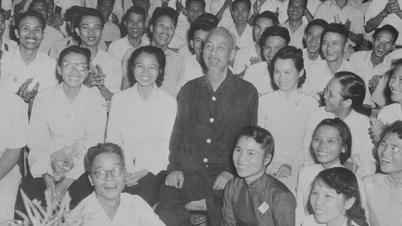
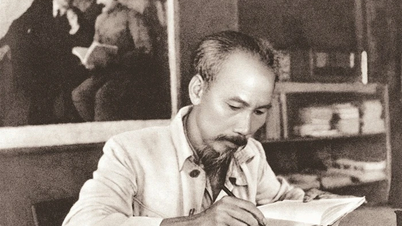

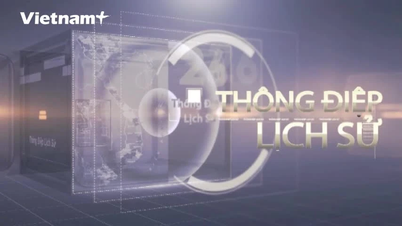
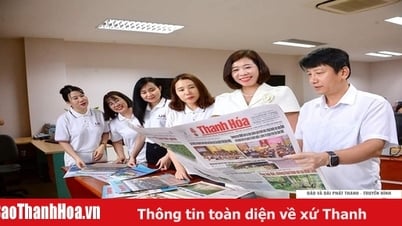


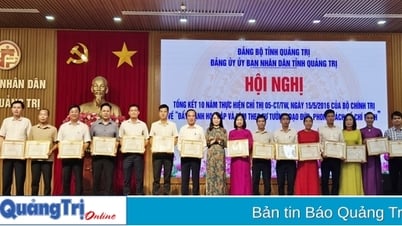

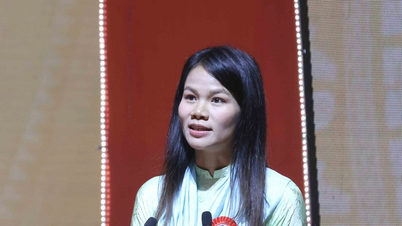
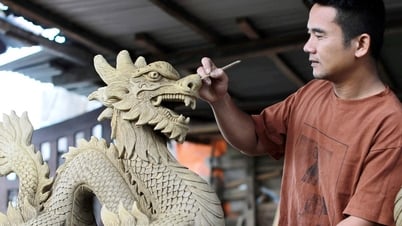




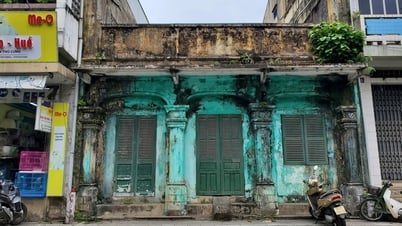
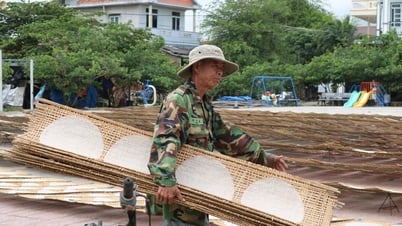





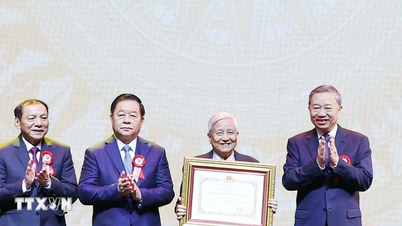

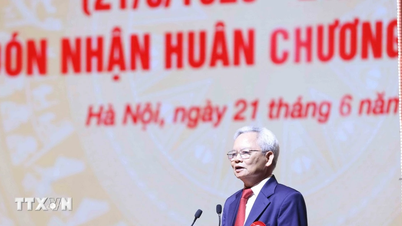
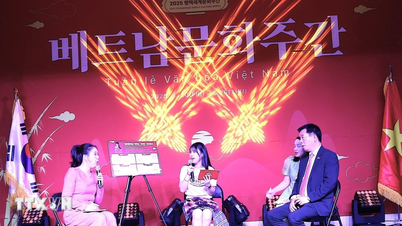
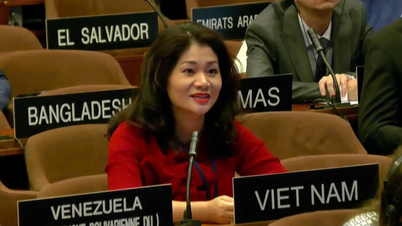

![[Photo] Overcoming the heat, practicing to prepare for the parade](https://vphoto.vietnam.vn/thumb/1200x675/vietnam/resource/IMAGE/2025/6/21/b93392e8da8243b8a32040d19590e048)
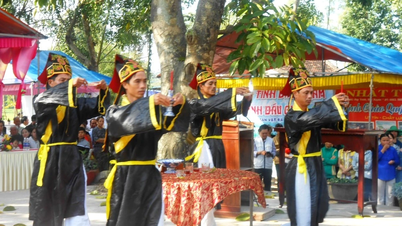

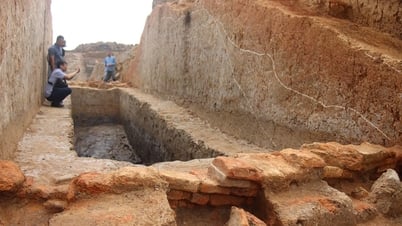

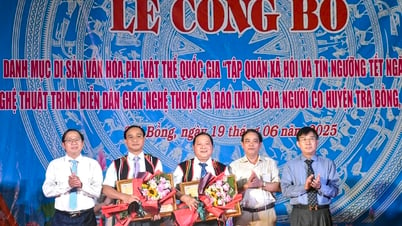









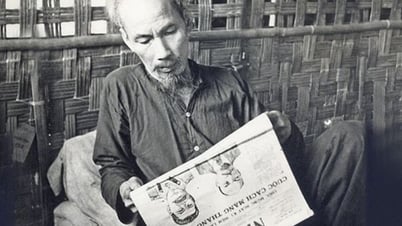
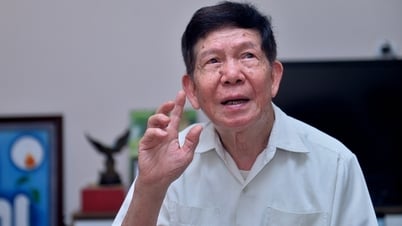









![[Maritime News] Wan Hai Lines invests $150 million to buy 48,000 containers](https://vphoto.vietnam.vn/thumb/402x226/vietnam/resource/IMAGE/2025/6/20/c945a62aff624b4bb5c25e67e9bcc1cb)






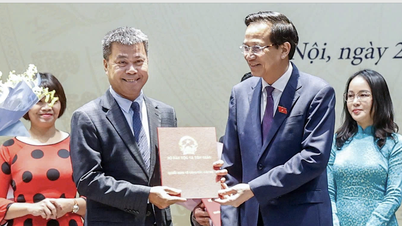

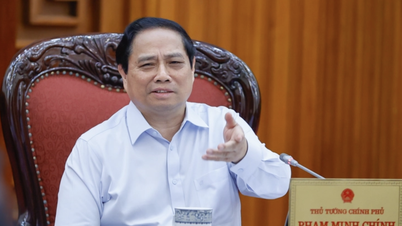

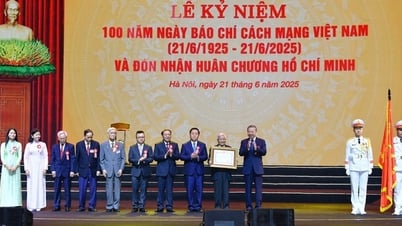

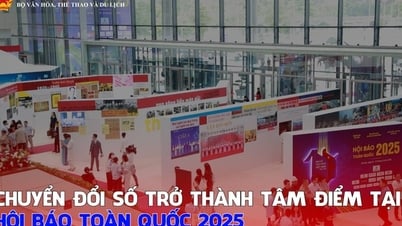
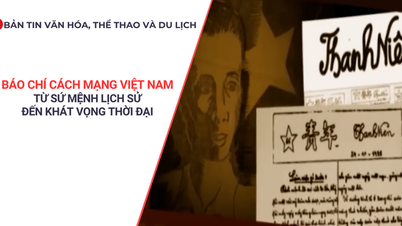
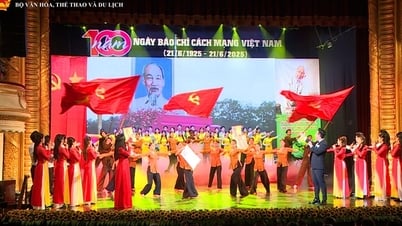
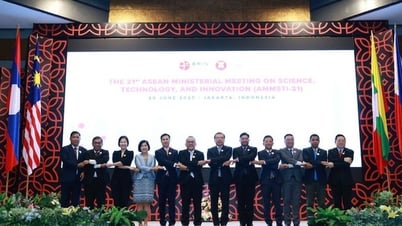

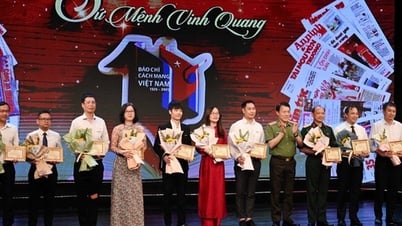
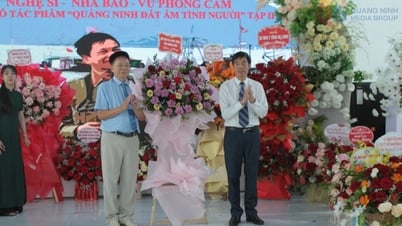


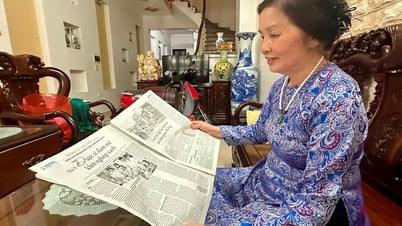

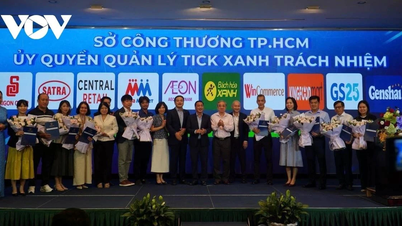

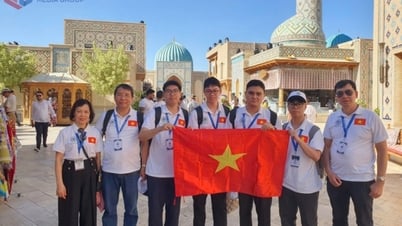












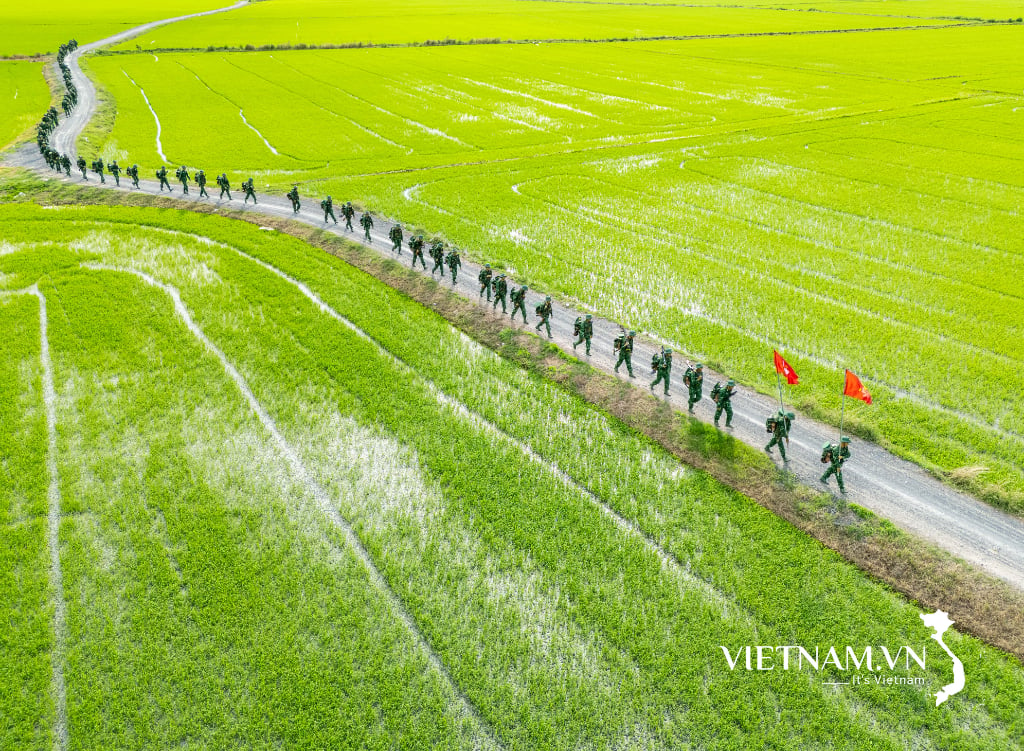


Comment (0)